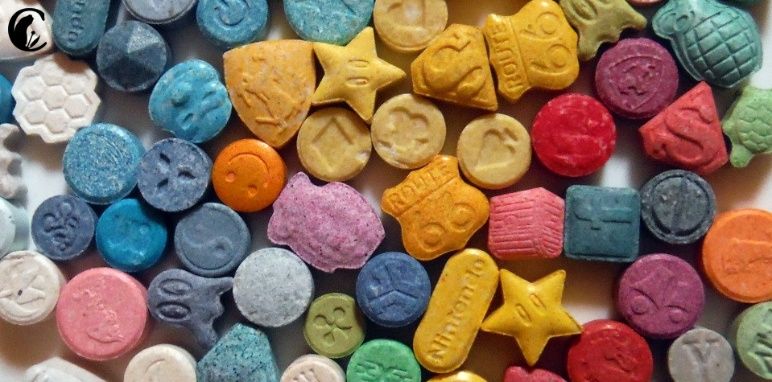

It has stimulating effects, empathogenic results in those who use it: “increased sensitivity to emotions, self-awareness and give you a sense of intimacy”., classified as narcotic. Its use as a recreational drug start in the 1990s, and it came with the rise of electronic music, a small companion of many revellers who praise its ability to annihilate inhibitions and dance beyond the subwoofers rhythm.
MDMA is now used as clinical tests in USA to treat patients with post-traumatic stress disorder (PTSD). MAPS (Multidisciplinary Association for Psychedelic Studies), based in Santa Cruz, launched a study of nearly 136 patients with PTSD. Studies have also been conducted by British scientists Mitul Mehta, a neuroscientist at King’s College London, and Anthony Gabay, a neuroscientist at Oxford University, examining the effect of MDMA in relation to its impact on social decision making.
Some of the studies target autistic people, who suffer from social phobia disorders. MDMA’s main mechanism of action is a rapid release of serotonin, dopamine, norepinephrine, and oxytocin. As a result the patients enter in a state of happiness, reducing depression and anxiety, allowing them to be in an appropriate mood for psychotherapy and improving motivation.
The findings of the study are consistent not only with the anecdotal data collected from drug user forums and several surveys, but also with all the research on the therapeutic virtues of MDMA conducted since 2008. The drug could be legal for medical treatment on 2021.
This drug gives you support. You learn to confront your memories and observe how they affect you. There were moments of freedom of speech, moments of tears, moments of reconstruction. Physically, it’s like my whole body vibrating.
Nonetheless the frequent and sustained use of MDMA can cause psychological dependence, which means that you need to take the drug more often in order to feel better about yourself, relax, calm down, feel stimulated or have the courage to face problems.
For more information about MAPS here, and MDMA here.




![[Event Review] Audien Closes Out Summer Club NYC as Season Finale](https://www.edmtunes.com/wp-content/uploads/2024/09/Photo-Jan-01-2000-1-14-29-AM-218x150.jpg)
